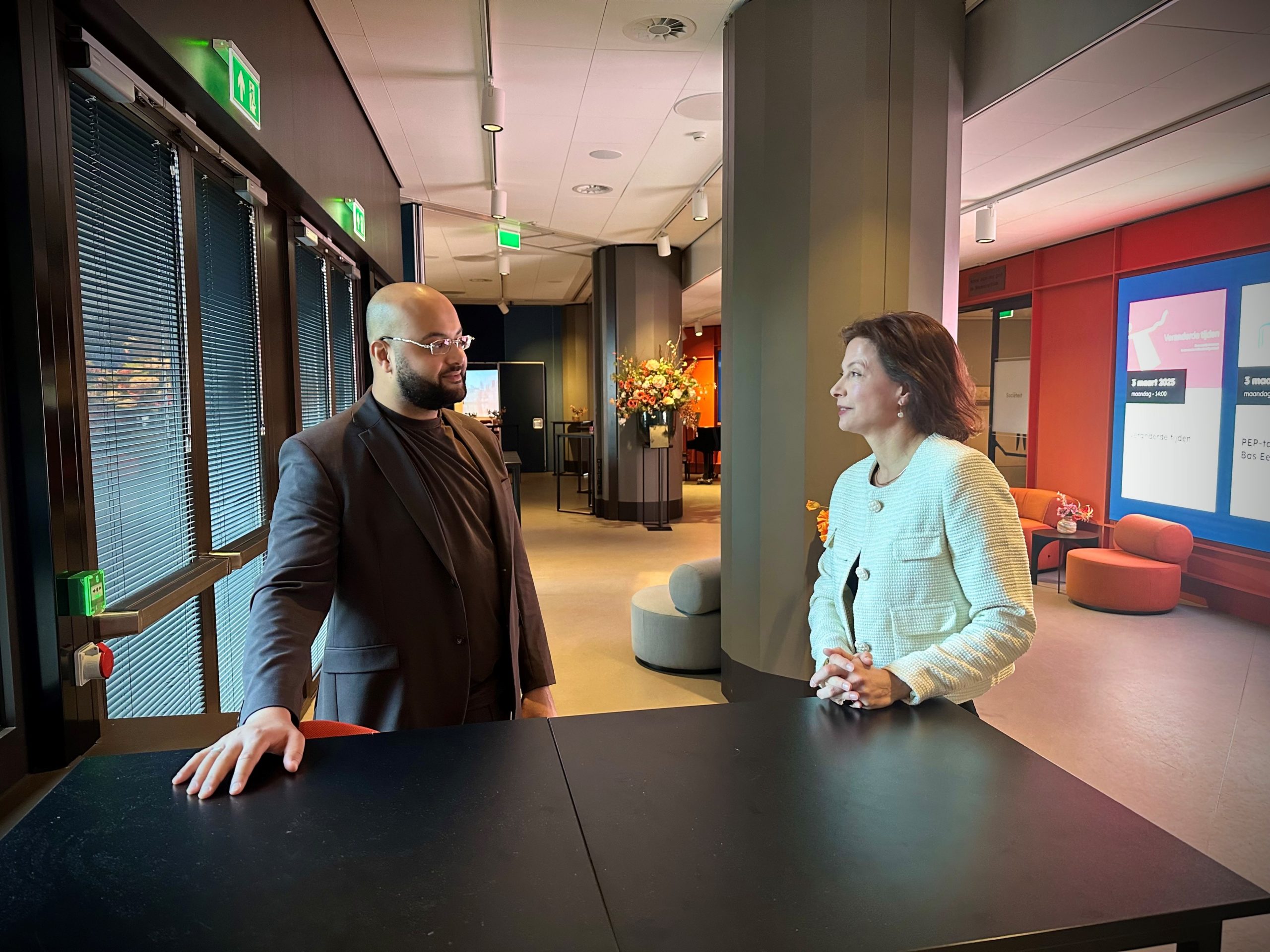By collecting almost 12,000 signatures in just a few weeks, Comité ZZP has sent a powerful signal to politicians: enforcement on false self-employment is overshooting the mark and threatens the freedom of self-employed entrepreneurs. The fear among freelancers is growing, while clients are increasingly dropping out for fear of legal consequences.
How did this committee come into being? What drives them to get involved in this fight? And how do they prevent their advocacy from being seen as a licence for false self-employment? Oifik Youssefi of the public affairs team at HeadFirst Group spoke with Danielle van Wieringen, co-founder of Comité ZZP, about the impact of enforcement against false self-employment, the negative framing of self-employed workers and why the Netherlands is in urgent need of a simpler and fairer system.
Many business owners are speaking out about the state of laws and regulations these days, but how does a committee like this one come about?
The committee was formed by Peer Goudsmit and myself. We served on the board of the Labor Association and there is still an active group of people involved. When enforcement on labor relations was tightened January 1, 2025, there was a stir: should we do something with this? Peer and I had the most energy for that. The committee now consists of about ten people. Our goal is to make visible and audible what is going on among freelancers and to influence the political discussion. We had to start somewhere, so we started a petition.
Why did you feel called to participate in this?
It was actually an occasional action. Peer and I are both entrepreneurial and want to connect. We saw the need to take action and hook others up.
What do you personally notice about enforcement on false self-employment in your entrepreneurship?
I see that self-employed people are becoming more and more afraid. Clients stop hiring self-employed workers overnight, for fear of enforcement and lack of clarity in legislation. The framing around the self-employed is negative: we are being put away as cowboys and greedy people. That affects me personally. Since last year, I can only see this sentiment growing. It is becoming a self-fulfilling prophecy: if you keep labeling the self-employed as a problem, they will automatically become a problem.
What stories and signals do you hear from fellow entrepreneurs?
Duped people are increasingly approaching us. For example, a music school that depends on zzp teachers no longer dares to hire anyone for fear of the "embedding test. Or a sound engineer who now does not know how to arrange his social security because he has different types of assignments. The system has become too complicated.
Are you concerned about recent developments?
Yes. The policy feels increasingly oppressive and patronizing. Instead of encouraging entrepreneurship, in my view, it is being made more difficult. A healthy economy needs a strong flexible shell, but now it seems like the government is deliberately trying to reduce that shell.
The committee argues that the DBA law and enforcement against false self-employment miss the mark. What do you think is a better alternative?
I don't even know if false self-employment is really such a big problem. I do interim assignments and am sometimes hired temporarily, for example to replace someone on maternity leave; in this there is embedding. Why shouldn't that be allowed? I am in favor of tackling forced self-employment at the bottom of the market, but not against restricting the freedom of genuine self-employed people who consciously choose to be self-employedWe really need to get back to basics: clear and fair rules without unnecessary complexity.

How was the petition received by the House of Representatives?
The Chamber members were not surprised. They sense that there is unrest. This did get the conversation back on track a bit more.
Enforcement on false self-employment is justified in part as protecting vulnerable workers. How does the Committee ensure that their advocacy is not seen as facilitating false self-employment?
We are committed to a fair, simple solution that gives self-employed workers freedom of choice and protects vulnerable workers. The government must stop criminalizing self-employed workers. The problem is not in the self-employed themselves, but in the fact that our system is unnecessarily complex.
There has been criticism that some principals are exploiting the current lack of clarity to cut costs. How does the Committee respond to this?
If you make social premiums paid by default by contractors and simplify the system, that problem is solved. In other countries, such as Belgium and Scandinavia, social premiums are paid by default by contractors. In the Netherlands, the differences between contract types are far too great, making it unnecessarily complex.
What specific changes would you suggest to current laws and regulations? For example, what do you think of the VBAR bill?
The VBAR is yet another step in increasingly tightening labor relations, making it more difficult for the self-employed to be self-employed. This no longer fits the modern economy. Policymakers keep harking back to the labor law of 1907, but the labor market has completely changed in the meantime. We must accept that flexibility is here to stay.
The Supreme Court ruled in the Uber case that the "entrepreneurship" element should be given more weight in assessing the employment relationship. How is the Committee listening to that judgment?
I honestly found it a relief and recognition for being self-employed. I am an autonomous worker and would like to have the space to be able to do that carefree. The nearly 1.8 million self-employed people who consciously choose self-employment should be able to continue to do so.
You guys are talking about a BSN model as a solution. What does that entail?
The idea is simple: based on your BSN number, it reveals how much you earn per year. Based on that, a fixed percentage of social security contributions is withheld. This makes the system much more transparent and fair.
How do you prevent stopping enforcement from leading to structural abuse of false self-employment?
Enforcement should focus on real abuses, not on self-employed people who are voluntarily self-employed. The problem is that the law is now applied too generically.
The Lower House will soon debate the zzp dossier. What would you like to give the MPs?
Independent professionals are the lubricant of the economy. The flexible shell of the labor market is essential for innovation and agility. But if we continue to cling to outdated legislation, the Netherlands risks pricing itself out of the market. I worry about the VBAR: it feels like an oppressive, patronizing measure that does not do justice to the reality of entrepreneurship.
Will the Comité ZZP still draw attention to the upcoming zzp debate?
We came up with an action: #RuimteVoorZZP. The action is all about mobilizing the self-employed and their clients so that politicians see how important the self-employed are to the economy and innovation. We are calling on everyone to join in by posting a joint post on March 12, a 🍓 after their name and sharing personal stories. The goal is to influence legislation and ensure realistic and workable policies for the self-employed.

Request a free consultation

Questions about this? Please contact us.
Sem Overduin
Public Policy & Affairs Manager
Sem.Overduin@headfirst.nl
Oifik Youssefi
Public Affairs Officer
Oifik.Youssefi@headfirst.nl
Maaike van Driel
Head of Legal
Maaike.vanDriel@headfirst.group
Thomas ten Veldhuijs
Senior Legal Counsel
Thomas.tenVeldhuijs@headfirst.nl
